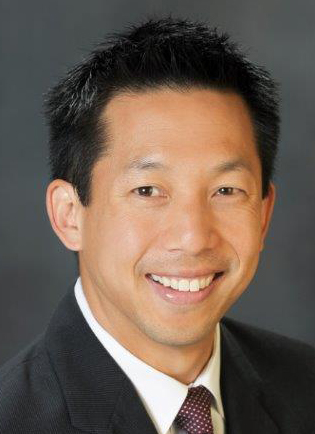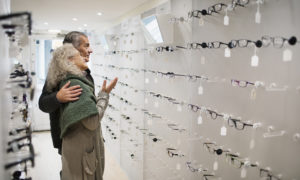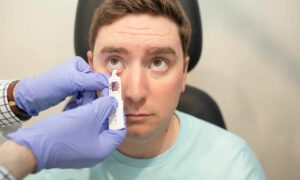By Brian Chou, OD,  FAAO
FAAO
May 20, 2015
To make room for my life priorities, I now decline most invitations to lecture for continuing education. But with a speaker’s perspective, I can say there is nothing more effective at making an audience cower and avoid eye contact than asking, “Would anyone like to share their worst clinical mistake?”
This is understandable. Optometry is a learned profession with a tendency for excellence, accuracy of information and righteousness. Our trade publications and CE lectures trumpet case reports that boast of clinical acumen. They also show the pitfalls of doctors who wind up in malpractice cases; heaven forbid any of us to make those mistakes.
No wonder most of us would have insecurities and feel mortified about sharing our clinical mistakes with our colleagues. All this makes it more impressive when one among us has the courage and vulnerability to share their clinical mistakes for the benefit of colleagues and their patients.
I’d like to share with you one of these special people, a well-respected ophthalmologist, whom I’ll refer to as Dr. T. He shared with me a story of one of his mistakes. It was very touching and resonated with me.
At one of his patient’s cataract post-op exams, Dr. T realized that he had implanted the wrong IOL. The patient was one of the grumpy types, not a particularly easy-going fellow. Not sure what to tell the patient, Dr. T had the patient schedule another progress visit and postpone any possible discussion. In reviewing what transpired, Dr. T determined that his usual checks and balances for surgery failed. This occurred in part due to a staff member’s mistake, but ultimately, he did not confirm that he was implanting the correct IOL.
Dr. T called up his professional liability insurance and was counseled not to disclose to the patient what had happened. This was difficult for Dr. T to digest and weighed heavily on him, causing him sleepless nights. At the patient’s next progress visit, Dr. T disregarded what his professional liability insurance had counseled him to do. Exposed and vulnerable, he straight up told the patient that he made a mistake, described what went wrong and apologized. Dr. T asked for the patient’s forgiveness and proposed how he’d like to make things right with an IOL exchange. The patient was not happy. In real life, not all stories end well. Fortunately, this one resolved positively. The grumpy patient saw Dr. T’s humility, honesty and morality – and accepted his apology and forgave him.
The subsequent IOL exchange went well and the patient is now one of Dr. T’s biggest fans.
I suspect that most of us in Dr. T’s shoes would have covered their own ass. Dr. T is quite the exceptional person; genuinely kind, caring and courageous, and also a superb clinician and surgeon. This story epitomizes his selflessness, and it inspires me to do the same. It reminds me of a quote by the college basketball coach, Rick Pitino: “Lying makes a problem part of the future; truth makes a problem part of the past.”
Still, the climate in our profession doesn’t feel like a permissive one in which doctors can openly talk about their mistakes. The familiar refrain, “To err is human,” doesn’t have the same acknowledgement in what we do. This needs to change. It is with the safety of sharing mistakes that we become better doctors and help our colleagues, as well. It starts by having the courage to accept that we all make mistakes. And that is fine. The clinician who hasn’t made a mistake hasn’t seen enough patients, or is in denial. It also starts by more openly talking about our mistakes.
I, for example, caused angle closure by dilating a patient with narrow angles, and have misdiagnosed important retinal lesions; these experiences have become some of my past article and lecture topics. Yet it doesn’t require sharing your mistake publicly to shift our profession’s culture. Change can also take the form of sharing your mistakes privately with a colleague. Or if you are on the receiving end, having the compassion to listen and support your colleague while learning from their experience.
It is my strong belief that patients do not expect perfection from me or you. They expect competency, and seek honesty and integrity.
What is one of your greatest clinical mistakes? What would make it easier for more of our colleagues to talk about their mistakes?
Brian Chou, OD, FAAO, is a partner with EyeLux Optometry in San Diego, Calif. To contact him: chou@refractivesource.com.



























